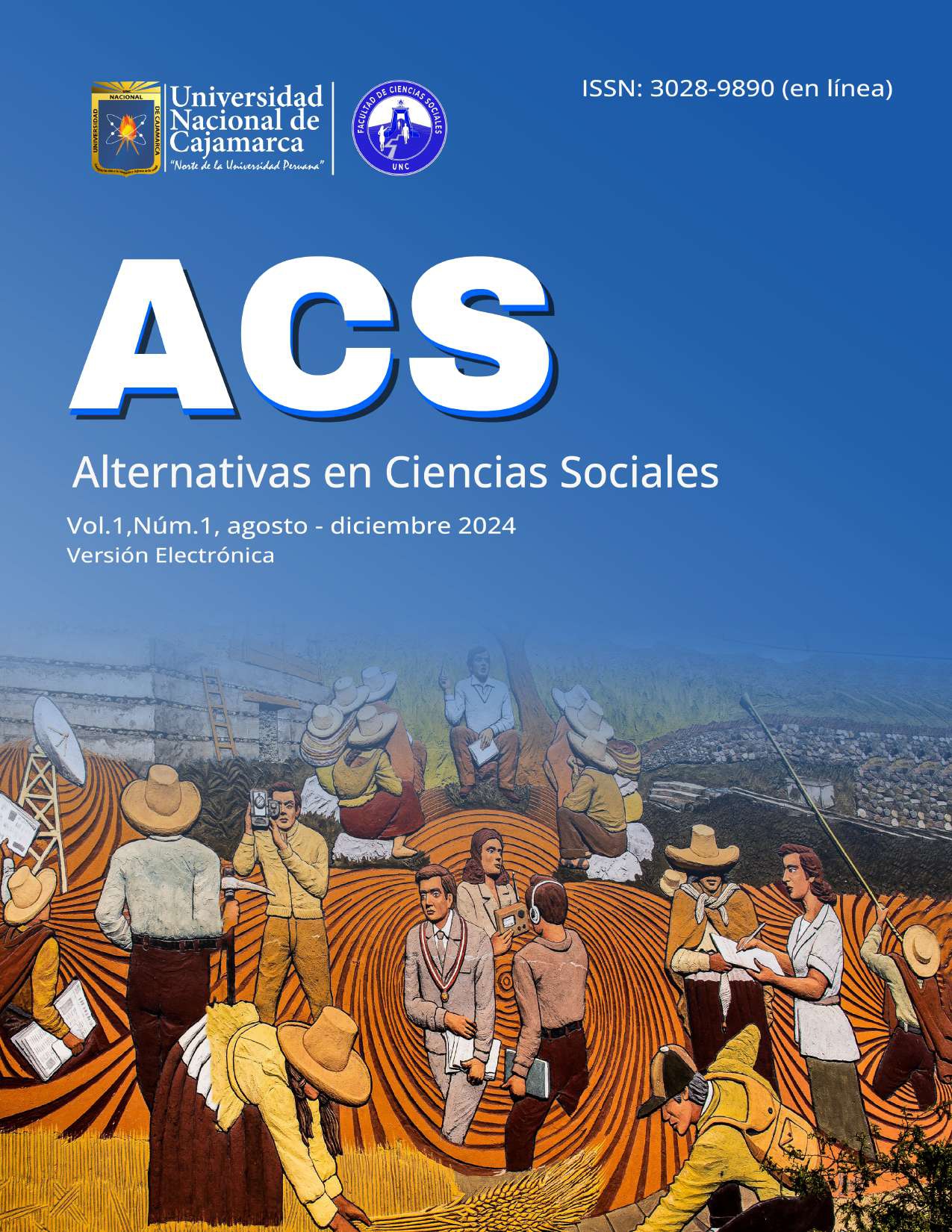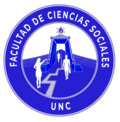Las ciencias sociales en su dimensión pública. Ejercicios de escritura y su influencia en el discurso político-social
DOI:
https://doi.org/10.70467/acs.v1n1.4Palabras clave:
dimensión pública de las ciencias sociales, divulgación, discurso político/social, escritura, esfera cívico-políticaResumen
Este ensayo plantea algunas reflexiones sobre el alcance y límites de los ejercicios de escritura realizados por científicos sociales, cuando se involucran en entornos extra-académicos; esto es, cuando dicha labor se dirige a auditorios en la esfera público-civil de sus colectividades. En ese sentido un eje de exploración consiste en sopesar tales prácticas en el moldeamiento del discurso político-democrático de las personas como individuos y ciudadanos. Se plantea lo previo, teniendo en consideración que la escritura para estos fines y audiencias, ha seguido ciertas rutas y se define por un estado actual particular (o conjunto de retos por afrontar), pero que además requiere examinarse con miras a su replanteamiento creativo como tarea pública y compromiso intelectual.
Descargas
Referencias
Andersen, I.V. (2023). Rhetorical citizenship and the environment. Climate Resilience and Sustainability, 2, e249, 1-13. https://doi.org/10.1002/cli2.49
Bakewell, S. (2024). Let’s put the individual at the top of the list of concerns. This is how humanism is structured. Pledge Times. https://pledgetimes.com/lets-put-the-individual-at-the-top-of-the-list-of-concerns-this-ishow-humanism-is-structured/
Barbe, K. (2007). Victor Klemperer: The accidental sociolinguist. Journal of Socio-linguistics, 11(4), 505-519.
Barrow, C.W. (2017). The political and intellectual origins of New Political Science. New Political Science, 39(4), 437-472. https://doi.org/10.1080/07393148.2017.1378297
Bartels, L.M., Daxecker, U.E., Hyde, S.D., Lindberg, S.I. y Nooruddin, I. (2023). The Forum: Global challenges to democracy? Perspectives on democratic backsliding. International Studies Review, 25(2), viad019. https://doi.org/10.1093/isr/viad019
Berkowitz, C. y Gibson, M. (2022). Reframing the public humanities: The tensions, challenges & potentials of a more expansive endeavor. Daedalus, 151(3), 68-81. https://doi.org/10.1162/daed_a_01929
Boroumand, L. (2014). Václav Havel’s legacy and the struggle for human rights in Iran today. Fathom. https://fathomjournal.org/vaclav-havelslegacy-and-the-struggle-for-human-rights-in-iran-today/
Brennan, D. (2017). Considering the public private-dichotomy: Hannah Arendt, Václav Havel and Victor Klemperer on the importance of the private. Human Studies, 40(2), 249-265. http://www.jstor.org/stable/44979858
Brennan, D. (2023). Václav Havel’s legacy: Politics as morality. Critical Horizons, 24(3), 316-318. https://doi.org/10.1080/14409917.2023.2262343
Burawoy, M. (2005 [2004]). American Sociological Association Presidential address: For public sociology. The British Journal of Sociology, 56, 259-294. https://doi.org/10.1111/j.1468-4446.2005.00059.x [En español: Burawoy, M. (2005). Por una sociología pública. Política y Sociedad, 42(1), 197-225. https://revistas.ucm.es/index.php/POSO/article/view/POSO0505130197A/23044]
Calhoun, C. (2004). Toward a more public social science. Items and Issues, 5(1-2), 4-5.
Calhoun, C. (2005). The promise of public sociology. The British Journal of Sociology, 56, 355-363. https://doi.org/10.1111/j.1468-4446.2005.00065.x
Curthoys, N. (2014). Politics and language. En M.T. Gibbons (Ed.), The Encyclopedia of Political Thought (pp. 1-11). https://doi.org/10.1002/9781118474396.wbept0799
Dunleavy, P. (2014). Shorter, better, faster, free: Blogging changes the nature of academic research, not just how it is communicated. LSE Impact Blog. https://blogs.lse.ac.uk/impactofsocialsciences/2014/12/28/shorter-better-faster-free/#author
Enroth, H. (2023). Crisis of authority: The truth of post-truth. International Journal of Politics, Culture and Society, 36, 179-195. https://doi.org/10.1007/s10767-021-09415-6
Fuks, M., Casalecchi, G.A. y Araújo, M.M. (2017). Are dissatisfied democrats critical? Reevaluating the concept of the critical citizen. Opinião Pública, 23(2), 316-333. https://doi.org/10.1590/1807-01912017232316
Furnell, G. (2022). Václav Havel on defying a system of lies. Quadrant Online. https://quadrant.org.au/magazine/2022/11/vaclav-havel-ondefying-a-system-of-lies/
Gonzalez-Mohino, M., Rodriguez-Domenech, M.Á., Callejas-Albiñana, A.I. y Castillo-Canalejo, A. (2023). Empowering critical thinking: The role of digital tools in citizen participation. Journal of New Approaches in Educational Research, 12(2), 258-275. https://doi.org/10.7821/naer.2023.7.1385
Grandio M., O. (2022). Havel, la búsqueda de la verdad y el fin del totalitarismo en Cuba. Hyper Media Magazine. https://hypermediamagazine.com/columnistas/mejor-no-me-callo/vaclav-havel-verdad-totalitarismocuba/
Hammer, D.C. (1995). Václav Havel’s construction of a democratic discourse: Politics in a postmodern age. Philosophy Today, 39(2), 119-130.
Hauser, G.A. (2004). Rhetorical democracy and civic engagement. En G.A. Hauser y A. Grim (Eds.), Rhetorical democracy (pp. 1-14). Routledge.
Havel, V. (2013). El poder de los sin poder. Ediciones Encuentro.
Isaac, J.C. (2015). For a more public political science. Perspectives on Politics, 13(2), 269-283.
Johnson, D. (2000). What Victor Klemperer saw. Commentary. https://www.commentary.org/articles/daniel-johnson/what-victor-klemperer-saw/
Kashiha, H. (2022). Academic lectures versus political speeches: Metadiscourse functions affected by the role of the audience. Journal of Pragmatics, 190, 60-72.
Klemperer, V. (2001). LTI. La lengua del Tercer Reich: Apuntes de un filólogo. Editorial Minúscula.
Kock, C. y Villadsen, L.S. (Eds.). (2012). Rhetorical citizenship and public deliberation. Pennsylvania State University Press.
Kock, C. y Villadsen, L.S. (Eds.). (2015). Contemporary rhetorical citizenship. Leiden University Press.
Kock, C. y Villadsen, L.S. (2017). Rhetorical citizenship: studying the discursive crafting and enactment of citizenship. Citizenship Studies, 21(5), 570-586. https://doi.org/10.1080/13621025.2017.1316360
López, P. (2024). Vigencia de Victor Klemperer. Letras Libres. https://letraslibres.com/revista/vigencia-de-victor-klemperer/01/06/2024/
Loughlin, M. (2024). ‘Sovereignty and the persistence of the aesthetic’: Some thoughts on academic writing. MLR Forum 001. http://www.modernlawreview.co.uk/loughlin-some-thoughts
Martinelli, A. (2011). Las ciencias sociales en el espacio público. En Organización de las Naciones Unidas para la Educación, la Cultura y la Ciencia (UNESCO) y Consejo Internacional de Ciencias Sociales (ISSC) (Eds.), Informe sobre las ciencias sociales en el mundo. Las brechas del conocimiento (pp. 303-305). UNESCO; Foro Consultivo Científico y Tecnológico, AC.
Montesinos, T. (2016). Bondadoso, excesivo, ingenuo Václav Havel. La Razón. https://www.larazon.es/cultura/libros/bondadoso-excesivoingenuo-vaclav-havel-CO13951883/
Morone, J. y Ziv, N. (2024). It’s more important than ever to invest in research communication. Inside Higher Education Blog. https://www.insidehighered.com/opinion/blogs/rethinking-researchcommunication/2024/03/11/its-more-important-ever-invest-research
Oette, L. (2017). Document and analyze: The Legacy of Klemperer, Fraenkel, and Neumann for contemporary human rights engagement. Human Rights Quarterly, 39(4), 832-859.
Pazzanese, C. (2023). Should we be worried about rising heat of political discourse? Yes. Harvard Gazette. https://news.harvard.edu/gazette/story/2023/10/should-we-be-worried-about-heat-of-politicaldiscourse
Pearson, W.S. y Abdollahzadeh, E. (2023). Metadiscourse in academic writing: A systematic review. Lingua, 293, 103561.
Popescu, D. (2012). Havel on the responsibility of resistance for all. Waning Non Violence. https://waningnonviolence.org/2012/01/havel-on-theresponsability-of-resistance-for-all/
Power, N. (2017). The language of the new brutality. E-flux Journal, (83). https://www.e-flux.com/journal/83/141286/the-language-of-the-newbrutality/
Power, N. y Ryan, C. (2017). Writing as praxis: Catherine Ryan interviews Nina Power. Public, 28(55), 109-119. https://intellectdiscover.com/content/journals/10.1386/public.28.55.109_7
Price, G. (2019). Towards a political sociology of language. En Language, society, and the state: From colonization to globalization in Taiwan (Cap. 2, pp. 33-74). Walter de Gruyter Inc.
Puchner, M. (2021). Changing language eroded U.S. democracy, mirrored Nazi era. Los Angeles Times. https://www.latimes.com/opinion/story/2021-01-23/trump-capitol-attack-language-democracy
Putnam, R. (2003). APSA presidential address: The public role of political science. Perspectives on Politics, 1(2), 249-255.
Recuero, R. (2024). The platformization of violence: Toward a concept of discursive toxicity on social media. Social Media+Society, 10(1). https://doi.org/10.1177/20563051231224264
Rees, P. (2023). Rhetoric and rights: Citizenship and the politics of persuasion. Political Studies, 71(4), 1190-1207. https://doi.org/10.1177/00323217211063729
Remaud, O. (2000). Language of dark times. Canetti, Klemperer and Benjamin. Diogenes, 48(189), 11-22. https://doi.org/10.1177/039219210004818902
Renwick, A. y Fieldhouse, T. (2023). Healthy political discourse: what is it and why does it matter? The Constitution Unit Blog. https://constitutionunit.com/2023/10/31/healthy-political-discourse-what-is-it-and-whydoes-it-matter/
Rountree, J. (2022). Rhetorical criticism. En S.A. Ercan, H. Asenbaum, N. Curato y R.F. Mendonça (Eds.), Research Methods in Deliberative Democracy (pp. 278-291). https://doi.org/10.1093/oso/9780192848925.003.0019
Shermer, M. (2024). Is social science politically biased? Scientific American. https://www.scientificamerican.com/article/is-social-sciencepolitically-biased/
Sibbett, L. A. (2016). Toward a transformative criticality for democratic citizenship education. Democracy and Education, 24(2), 1-11.
Slack, K. (2022). What is engaged scholarship and how can it improve your research? Inside Higher Education Blog. https://www.insidehighered.com/blogs/rethinking-research/what-engaged-scholarship-and-howcan-it-improve-your-research
Tufa, W.T., Markov, I. y Vossen, P. (2024). Grounding toxicity in realworld events across languages. Arxiv [Preimpreso]. http://arxiv.org/html/2405.13754v1
Turpin, B. (2010). Victor Klemperer et le langage totalitaire d’hier à aujourd’hui: Compte-rendu du colloque de Cerisy-la-Salle. Hermès, 3(58), 63-67.
Zhang, J. (2024). Experts discuss the current state of political language. The Hoya. https://thehoya.com/news/experts-discuss-the-currentstate-of-political-language/
Descargas
Publicado
Número
Sección
Licencia
Derechos de autor 2024 Alternativas en Ciencias Sociales

Esta obra está bajo una licencia internacional Creative Commons Atribución-NoComercial 4.0.












